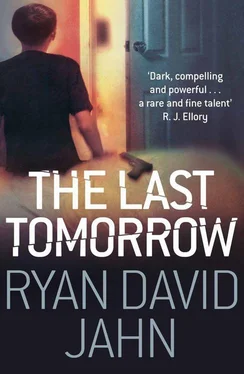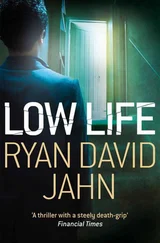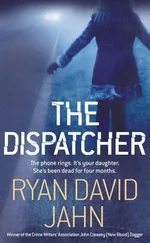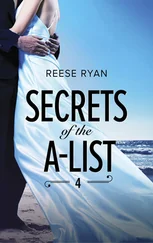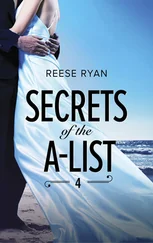Ryan Jahn - The Last Tomorrow
Здесь есть возможность читать онлайн «Ryan Jahn - The Last Tomorrow» весь текст электронной книги совершенно бесплатно (целиком полную версию без сокращений). В некоторых случаях можно слушать аудио, скачать через торрент в формате fb2 и присутствует краткое содержание. Год выпуска: 2012, ISBN: 2012, Издательство: Macmillan Publishers UK, Жанр: Триллер, на английском языке. Описание произведения, (предисловие) а так же отзывы посетителей доступны на портале библиотеки ЛибКат.
- Название:The Last Tomorrow
- Автор:
- Издательство:Macmillan Publishers UK
- Жанр:
- Год:2012
- ISBN:9780230766501
- Рейтинг книги:4 / 5. Голосов: 1
-
Избранное:Добавить в избранное
- Отзывы:
-
Ваша оценка:
- 80
- 1
- 2
- 3
- 4
- 5
The Last Tomorrow: краткое содержание, описание и аннотация
Предлагаем к чтению аннотацию, описание, краткое содержание или предисловие (зависит от того, что написал сам автор книги «The Last Tomorrow»). Если вы не нашли необходимую информацию о книге — напишите в комментариях, мы постараемся отыскать её.
The Last Tomorrow — читать онлайн бесплатно полную книгу (весь текст) целиком
Ниже представлен текст книги, разбитый по страницам. Система сохранения места последней прочитанной страницы, позволяет с удобством читать онлайн бесплатно книгу «The Last Tomorrow», без необходимости каждый раз заново искать на чём Вы остановились. Поставьте закладку, и сможете в любой момент перейти на страницу, на которой закончили чтение.
Интервал:
Закладка:
‘Too cheery for me. Like sex, drinking should be done in the dark. It adds mystery to the whole experience.’
‘God,’ he says, ‘are you sure you don’t just wanna get hitched?’
‘Do I look like a horse to you?’
‘All right,’ he says. ‘I’ll settle for dinner. Pick you up around seven?’
‘Are you leaving already?’
He taps his empty glass. ‘One more drink and I’ll be crawling home.’
‘Hey, Jerry,’ Evelyn says, ‘pour one more for Gene. He’s promised a show.’
Jerry glances toward them, but Eugene waves him away.
He gets to his feet, bowing slightly. ‘It was lovely meeting you.’
He takes her hand in his and kisses the back of it. It’s cool and dry and soft and he can smell perfume on the inside of her wrists, something light and flowery and unlike the woman herself.
‘I look forward to tomorrow night, Evelyn.’
‘Room three twenty-three,’ she says.
‘Room three twenty-three.’
He turns and heads for the door, pushes through it, staggers into the night. He blinks at his milk truck parked by the curb and feels a moment of internal conflict. He knows he’s had a few too many, probably shouldn’t drive, but he knows too that he doesn’t feel like walking despite the fact it’s only a few blocks.
He lights an Old Gold, inhales deeply, exhales through his nostrils. He spits tobacco from the end of his tongue. He pulls his keys from his pockets and looks at them in his open palm.
‘Fuck it.’
Five minutes later he’s parking the milk truck in front of his building. He steps from his vehicle and tosses what remains of his cigarette into the street. A car passes by. He waves at it for no good reason and when the man behind the wheel doesn’t return his wave he wishes him an early death, or at least a sprained ankle. He walks into his building, up the stairs that lead to his front door, and as he walks up the steps he sees that something has been nailed there. A white envelope. The nail pierces its center, making it look to Eugene — perhaps because he’s drunk — a bit like an insect specimen.
‘And here,’ he says to nobody, ‘is the rare paper moth of Peru.’
He walks the rest of the way up the stairs and stands facing his door. He looks at the envelope nailed to it. There’s nothing written on the outside; it is just an envelope. It could contain anything.
After a moment he grabs the nail between the pad of his thumb and the side of his index finger and wiggles it back and forth and, once he has it loose enough to pull it from the door, does so. He turns the envelope over in his hand, but doesn’t open it. Instead he unlocks his front door and steps into his small apartment.
The kitchen is just inside the front door, tiled in blue. Cabinets hang over the counters. To the right of the kitchen is the living room, with only a counter between them. Next to the counter, a small table with two chairs sitting in front of it. On top of the table, a black case containing a portable typewriter. Beside the typewriter, a stack of blank paper beginning to yellow with age.
Eugene shuts the door behind him, looks at the typewriter, and thinks maybe he should try to get some writing done. He walks to the table and sits down, setting the envelope aside unopened. He pulls the typewriter toward him, unlatches the case. He looks at the typewriter, a green Remington with white keys. He bought it for five dollars when he moved to New York. The keys look like grinning teeth to him. He doesn’t like the grin at all. It’s full of contempt.
You’re really gonna do this again, eh?
‘Shut up.’
If you wanna pretend you’re a writer, go ahead. No skin off my nose.
‘I said shut up.’
He rolls a piece of paper into the machine.
He stares at it, blank.
The machine stares back, but says nothing more.
He’s just drunk enough to write the first sentence of his novel. He will dream this doorway into existence and he will walk through it. He’s done it before. He puts his fingers on the keys. They’re cold to the touch. He types.
CHAPTER ONE
I wasn’t supposed to be in the car when it went off the cliff.
He stops. He stares at the sentence for a long time. He blinks. He tears the paper from the machine, crumples it up, tosses it onto the table.
I knew you couldn’t do it.
He closes the typewriter case to shut the thing up. It only speaks when he doesn’t want it to, when he wishes it wouldn’t.
He pushes it away. He gets to his feet. He looks to the envelope on his table.
It can wait till tomorrow.
He walks to the back of his apartment and falls into bed, still clothed. He imagines he can hear the typewriter’s muffled voice mocking him from within its case. Eventually, though, he hears nothing at all.
Soon after the typewriter goes silent he’s snoring low rhythmic snores.
On the table, the envelope waits.
ELEVEN
1
A dark hardwood desk sits near the back of Seymour Markley’s large office, and Seymour himself sits behind it in a brown leather chair, his back straight, his hands clasped before him. He faces three chairs, one of them occupied.
He pulls a white rag from his pocket and gives it a quick snap to remove all lint, then takes off his glasses and cleans them methodically. He thinks about this situation, this bleeding of his personal life into his professional; he doesn’t like it one bit. He sets the glasses back on his nose, folds the rag into quarters, and slips it out of sight. He looks across his desk to Barry Carlyle, his chief investigator.
Barry is cue-ball bald, with a black mustache on his lip about the width of his nose, which is itself blade-thin, granny glasses resting on it precariously. His narrow shoulders give way to a large belly and backside before he dwindles down once more to skinny legs. He’s shaped a bit like an egg, and like an egg looks as though he may topple at any moment when standing upright. His legs are currently crossed, calf on knee, a pale bit of one ankle visible between his garter-clipped argyle sock and the hem of his gray slacks. He wears a poorly knotted red bowtie.
It’s nearly six o’clock in the evening on the seventh of April, the day after his meeting with those two whores in that San Fernando Valley diner, the sun’s hovering over the sea, threatening to sink into it hot and sizzle out, and Barry has just arrived. Seymour’s been nervously awaiting this meeting all day. He made phone calls, talked to Chief Parker about a few cases, spoke with his chief deputy about a troublesome witness, and more, but he did it all with the absent confidence and knowledge of a professional who can do his day-to-day work without full attention. Eighty-five per cent of his mind was on this bit of blackmail which has threatened his career and marriage. He awaits what Barry has to say with the same palm-sweaty dread with which he awaits a verdict in a case he’s unsure of.
‘Well?’
‘I’ve looked over the boy’s file, talked with the detectives covering the case, and done some other digging besides,’ Barry says in his nasal but toneless voice. ‘I think there’s a smart way to handle this, a way that might, with a little luck, even help to advance your career. Let me give you the facts and we’ll go from there, but they seem to me to suggest a fairly straightforward approach.’
‘Fair enough.’
‘Okay.’ Barry opens a folder in his lap and studies it a moment. ‘Okay. Here are the facts. One,’ he says, counting off with a finger, ‘the boy killed his stepfather and was inspired by a comic-book story to carve a star into the man’s forehead. Two, psychologists such as Frederic Wertham have done research into comics and believe they damage young minds and turn normal boys to violence. Three, the comic book that inspired the boy was published by E.M. Comics, which utilizes the Manning Printing Company of Newark, New Jersey, to do all of its comic books and magazines. And four, said printing company is owned by none other than James Douglas Manning.
Читать дальшеИнтервал:
Закладка:
Похожие книги на «The Last Tomorrow»
Представляем Вашему вниманию похожие книги на «The Last Tomorrow» списком для выбора. Мы отобрали схожую по названию и смыслу литературу в надежде предоставить читателям больше вариантов отыскать новые, интересные, ещё непрочитанные произведения.
Обсуждение, отзывы о книге «The Last Tomorrow» и просто собственные мнения читателей. Оставьте ваши комментарии, напишите, что Вы думаете о произведении, его смысле или главных героях. Укажите что конкретно понравилось, а что нет, и почему Вы так считаете.
